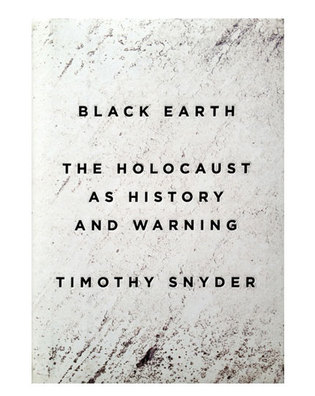 loading
loading
Arts & CultureReviews: January/February 2016Fiction and nonfiction by Yale faculty.  View full imageBlack Earth: The Holocaust as History and Warning Timothy Nunan is an Academy Scholar at the Harvard Academy for International and Area Studies. No one knows the precise number of Holocaust survivors still living today, but one thing is certain: their number is shrinking. When we reach the centenary of the Nazi seizure of power (2033), the Nazi-Soviet destruction of Poland (2039), or the invasion of the Soviet Union (2041), these events and the destruction of six million Jews they enabled will have passed from memory to history. Yet as Yale historian Timothy Snyder reminds us in Black Earth: The Holocaust as History and Warning—his explanation of the causes of the Holocaust—the accelerating shift from memory to commemoration demands reflection. Conventional accounts of the Shoah, Snyder argues, dwell excessively on Germany during 1933–38 and Auschwitz as metonyms for the Holocaust. The most determinative factor for whether Jews would live or die, he contends, was not prewar anti-Semitism but rather national sovereignty. In zones of “double state destruction,” where first Soviets, then Nazis, obliterated states (these were the Baltics plus contemporary eastern Poland, western Belarus, and western Ukraine), 99 percent of Jews perished, largely in mass shootings. The same holds elsewhere. In Nazi-occupied but technically sovereign Denmark, 99 percent of Jews survived, whereas in Greece and the Netherlands—where a puppet government ruled and where the SS took over domestic policy, respectively—three-quarters of Jews were deported to extermination camps. Only through the production of statelessness external to Germany could Adolf Hitler’s “biological anarchist” worldview find expression. Critics may object that it was precisely a powerful German state that created these stateless zones, but German Jews were still far more likely to survive than Jews in zones of statelessness. Further, the chief murdering institution—the SS—was a Nazi Party organization whose ability to destroy states multiplied once it left the borders of the Reich. Others might quibble with Snyder’s tone, which sometimes veers toward the prophetic. Yet the fact that the reception of Snyder’s work—integrating sources from 21 archives in 7 languages—has fallen along such national lines justifies the author’s apprehension. Eastern European audiences embrace the book because it bolsters their narratives of the nation as eternal victim; American historians of the Holocaust, who research the Shoah primarily through German archives, criticize it for not centering the analysis on Berlin. If this has disturbing implications for coming centenaries of what was, after all, an international event, it’s also what makes Black Earth such an urgent intervention.
|
|